PAN-AFRICANISM: between genuine aspirations and ideological hijacking
In this article you’ll get: a short history of pan-Africanism, a recap of its main thinkers, an analysis of its recent developments and an overview of the main pan-Africanist vectors of Russia’s influence in Africa.
What you want to understand 🤔
- What role did the Afro-American community play in the development of pan-Africanist ideas?
- How did pan-Africanism manage to go beyond the divide between pan-Arabism and Afrocentrism?
- What is the dynamic of the competition between pan-Africanists and “sovereignists” within the African Union?
- Why do African diasporas have such an important place in neo-pan-Africanist ideas?
- What are the obstacles to the development of pan-Africanism?
- How does Russia use pan-Africanism to expand its influence at the expenses of former colonial powers?
Panafricanism: movement that seeks to unify culturally and politically African peoples.
I. Brief History of Pan-Africanism
The pan-Africanist movement took root in the African-American community in the second half of the 19th century. Activists wanted to fight with Black communities from all continents for their emancipation and for equal treatment. Some also promoted the idea of returning to Africa to find refuge and civilise local populations.
The first pan-Africanist congress was held in London in 1900. Others followed in 1919 and 1921, calling for the end of colonial domination, a greater equality of treatment with Whites and a better redistribution of resources. Similar pan-Africanist congresses took place in 1923, 1927, 1945 and 1974.
After World War II, African thinkers led the pan-Africanist movement, many of whose members supported communism, which was strongly opposed in the US during the Red Scare of the 1950s. In the 1960s and 1970s, pan-Africanism reached its peak with decolonisation and the civil rights movements in the US.

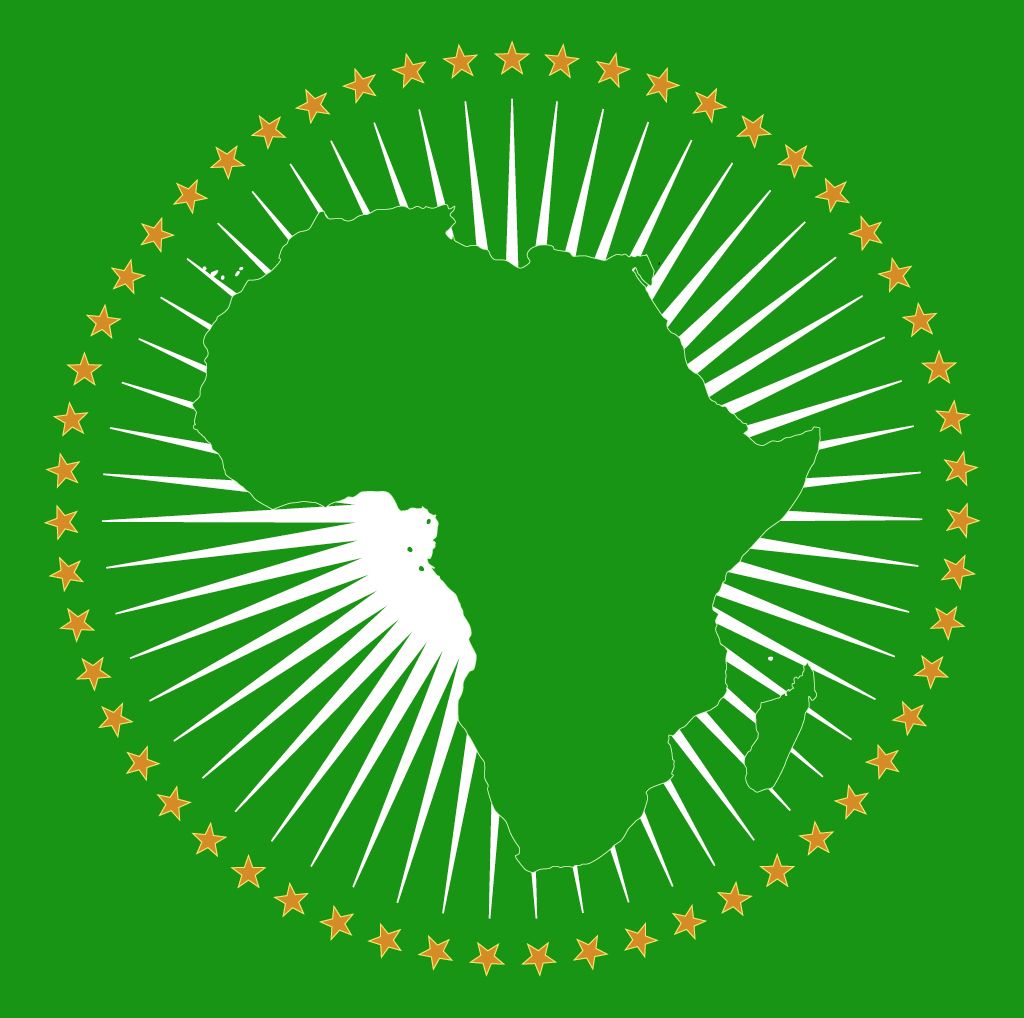
In fact, in 1963, Ghana’s Kwame Nkrumah (1909-1972) founded the Organization of African Unity (OAU). Thus, he provided an institutional framework of cooperation for the newly independent African states.
However, North African states gradually detached themselves from the rest of the continent in search of their own identity. As a matter of fact, pan-Africanism indirectly competed with pan-Arabism that Nasser promoted with the creation of the United Arab Republic in 1958. In parallel, Cheick Anta Diop and Théophile Obenga gave birth to Afrocentrism, which proposed a union of African countries with the exception of those from “White Africa” i.e. the Maghreb.

The African Union (AU) took over in 2002 to further promote political, economic and social solidarity between African countries on the model of the European Union. The AU wishes to create a union of peoples, and not simply of states. That’s why it seeks to associate all African diasporas to its projects.
However, since the 1960s and 1970s, the pan-Africanist movement has lost its momentum in favour of a “sovereignist” current that focusses solely on economic cooperation and integration. Pan-Africanism has nevertheless experienced a revival since the 2000s, which we shall study in this article.
II. Main Pan-Africanist Figures
Pan-Africanism is a flexible concept whose various leaders have each emphasised a particular aspect of the struggle for black liberation.
Henry Sylvester Williams (1869-1911) and Wilmot Blyden (1832-1912)
⤷ Willingness to achieve racial unity
⤷ Union of Blacks worldwide to fight injustice and racism
W.E.B Du Bois (1868-1963)
⤷ Struggle for equal civil rights so that Blacks better integrate the societies they live in
⤷ Importance for the Black diaspora to still maintain a strong connection to the African continent
Marcus Garvey (1887-1940)
⤷ Incited Black diasporas to migrate “back to Africa,” which would be a miracle solution to their ills in the Americas, the Caribbean and Europe
Kwame Nkrumah (1909-1972)
⤷ Anti-colonial struggle to regain independence in Africa and then create a federal union comprising all African states and with common political and economic ambitions.
⤷ Although he founded the OAU, Nkrumah did not succeed in imposing his federalist vision as the “sovereignist” current (economic cooperation only) was too strong. The United States of Africa model had to wait.

III. Neo-Pan-Africanism
The end of the apartheid and of the Cold War in the early 1990s brought about a transformation of the pan-Africanist movement, particularly under the leadership of Nelson Mandela. Indeed, neo-pan-Africanism revolves around Nkrumah’s vision while gathering as well all the other previous currents of thought.
Neo-pan-Africanism is careful not to forget African diasporas by embracing Garvey’s “back to Africa” concept. For example, Haiti, the first independent Black nation (1804), became an associate member of the AU in 2012. This membership was a significant victory for neo-pan-Africanists against sovereigntists in the AU.
Muammar Gaddafi, at the head of Libya between 1969 and 2011, played a major political and financial role for the promotion of pan-Africanism. The Libyan dictator’s sulphurous reputation, as well as doubts about his involvement in terrorist campaigns, deterred some African states from fully committing to his pan-African project.
We can also mention the former presidents of Mali and Senegal, Alpha Omar Konaré (1992-2002) and Abdoulaye Wade (2000-2012), who denounced Françafrique and spread panafricanist ideas across West Africa.

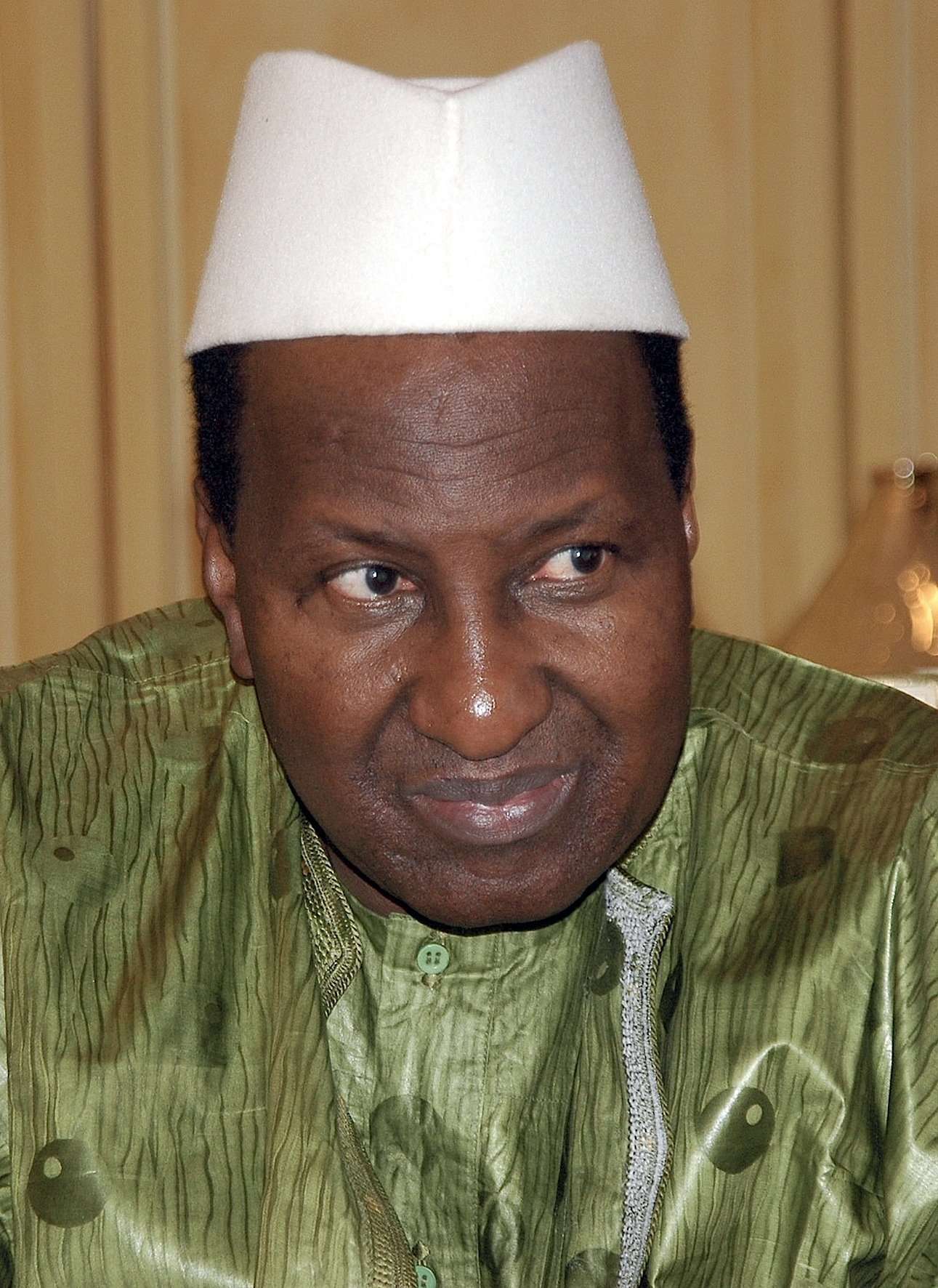

The anti-Western sentiment fed the revival of pan-Africanism in the 1990s and 2000s. Despite disagreements on the form the movement should take, all of its actors agreed that Africa must emancipate from foreign influences, especially from former colonisers.
In 2013, the AU designed its Agenda for 2063. However, it is unclear whether its future will be pan-Africanist or “sovereignist”. African states are indeed unable to gather behind a common development strategy for the continent.
It is also important to underline the diversity of pan-Africanist actors and of their ideas in light of their social affiliation. In order to better understand future evolutions of the movement, we shouldn’t reduce pan-Africanism to a form of nationalism that ignores its internal social dynamics.
IV. Obstacles to pan-Africanism
A. No political will to develop common solutions to regional issues
The fight against terrorism in the Sahel epitomises the fact that the African solidarity is to a certain extent limited. In fact, regional powers such as Senegal, the Ivory Coast and Nigeria didn’t contribute to the collective effort initiated by the G5 Sahel in conjunction with the French operation Barkhane. Terrorist groups are now progressively pushing towards the Gulf of Guinea, eventually threatening these countries that have stood back for years and left the burden of dealing with terrorism to the UN and France.
B. No leaders strong enough to carry the rest of the continent
Although South Africa and Nigeria may be considered more developed than their neighbours, no country has the institutional strength and security stability to initiate and follow through on continent-wide structural reforms, as France and Germany do in the EU.
C. Not enough African funds in the AU’s budget
In 2022, the EU, the US and China financed 33% of the AU’s budget. Until 2018, it was way more than 50%.
V. Ideological hijacking by Russia and the Wagner Group
In the informational field, we observe a rapprochement of Russian and pan-Africanist spheres of influence around an anti-Western rhetoric. A quick overview of the champions of pan-Africanism who are also vectors of Russian influence in Africa:
A. The Afric (Association for Free Research and International Cooperation)
This association is linked to Yevgeny Prigozhin, the leader of the Wagner Group. It has close ties with various pan-Africanist media outlets such as Radio Revolution Panafricaine and Afrique Média TV that spread anti-French and pro-Russian messages. For example, Afrique Média TV belongs to a press group based in Cameroon and that regularly share the views of Kémi Seba and Nathalie Yamb (see below).
B. Kémi Seba (in Western Africa)
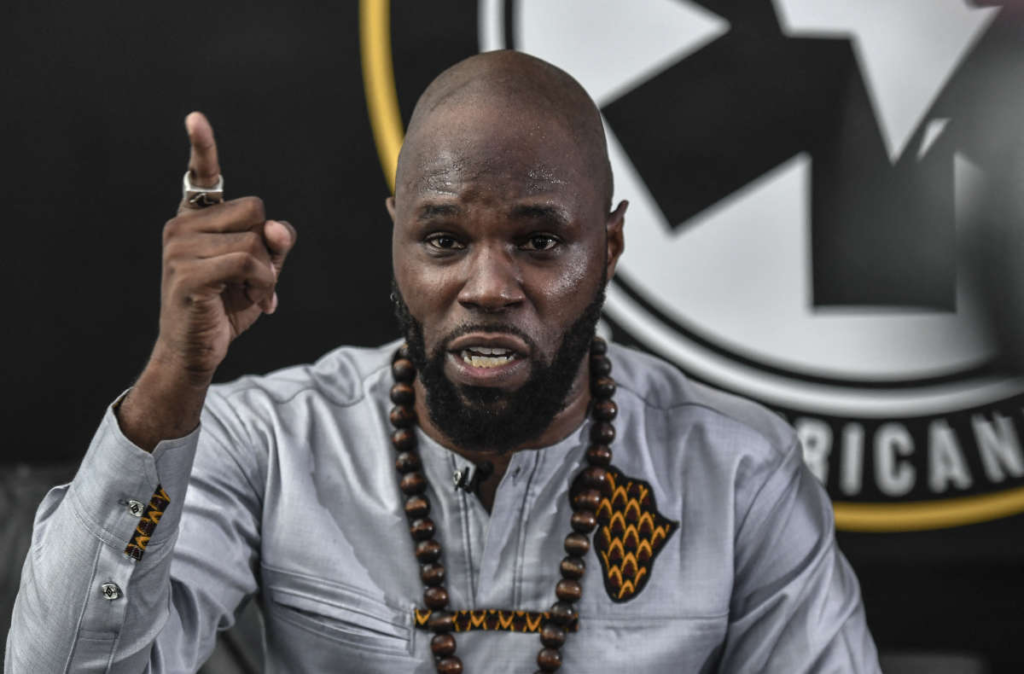
Born in Strasbourg, France, Kémi Seba is both French and Beninese. With his 1.1M followers on Facebook, he enjoys a certain influence in Western Africa, especially among the youth that adheres to his revolutionary rhetoric. He uses his NGO Urgences Panafricanistes to advocate for a complete autonomy of African peoples from their former colonial powers. Therefore, he openly supports Assimi Goïta in Mali and Ibrahim Traoré in Burkina Faso who ousted the French army that fought terrorist groups in the Sahel. Besides, he heavily criticises the use of the CFA Franc that he sees as a colonial legacy.
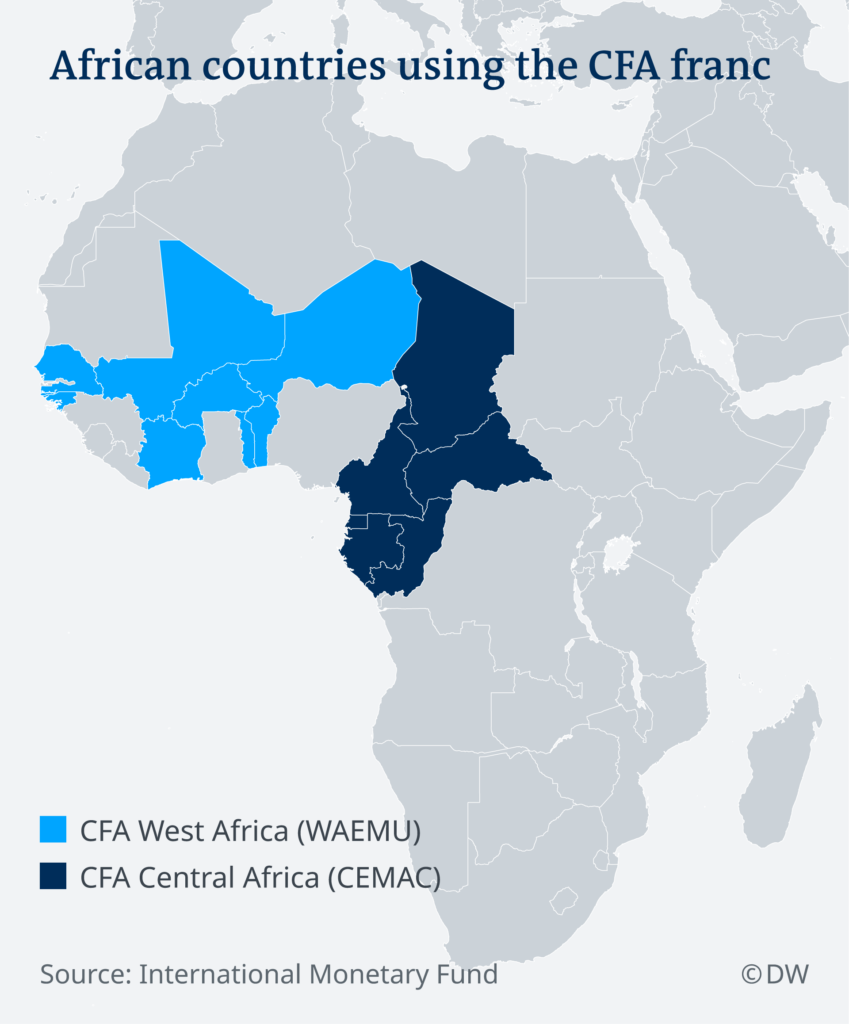
We can regard Kémi Seba as a vector of Russian influence in the region given that he met with President Putin in 2017 and 2022. Moreover, he has strong ties with Aleksandr Dugin, a Russian ultranationalist intellectual known for advising Putin.
The media JeuneAfrique has recently revealed that Kémi Seba received direct financial and operational support from the Wagner group and its notorious leader Yevgeny Prigozhin between 2018 and 2019.
C. Nathalie Yamb (aka “The Lady of Sochi” in Western Africa)

Nathalie Yamb is both Swiss and Cameroonese. Like Kémi Seba, who describes her as “a big sister of struggle and heart”, her pan-Africanist and anti-French activities cover Western Africa. She also clearly displays her closeness with Russia by relaying its propaganda on the war in Ukraine.
The Cameroonian New Popular Movement party also defends Russia’s stances and openly criticises Ukraine and its president Volodymyr Zelensky.
D. Radio Lengo Songo (in Central Africa)
The Central African popular radio is financed by the Wagner-owned Lobaye Invest company. The latter, along with the Russian embassy, supports the mercenary group through its multiple mining activities in Africa.

This radio station is extensively used by Blaise Didacien Kossimatchi, member of the pro-government “Galaxie Nationale” plateform, and Harouna Douamba, president of “Aimons notre Afrique,” an association financed by Lobaye Invest. Both of them regularly organised anti-French demonstrations in Bangui, calling for a greater Russian presence in the country.
E. Duduzile Zuma-Sambudla (in South Africa)
Duduzile Zuma-Sambudla is the daughter of former president Jacob Zuma (2009-2018). She regularly expresses her Russian inclinations to her 200,000 followers on Twitter. Not only was she the first to popularise the #istandwithrussia in South Africa, but she also continuously denounces Western imperialism in Africa.
F. Conclusive remarks
Pan-Africanism’s renewed popularity finds its origin in the anti-Western rhetoric developed by the people and organisations aforementioned. However, they only embody a radical populism that distort genuine pan-Africanist aspirations. It is worth noting some contradictions in their speeches:
- The West being a scapegoat for all of Africa’s ills while African elites’ behaviour and decisions are not questioned
- No real criticism of the Western model and no credible alternative political project. Indeed, they accept and maintain borders and hypercentralised institutions that come from colonisation and that ignore local socio-cultural realities
- Willingness to expel former colonial powers in the name of national sovereignty and anti-imperialism, but in parallel Russia is welcomed (mainly because it helps African elites remain in power)
- Establishment of a dogma around past thinkers and ideologies that cleaves societies and stigmatises “non-believers”

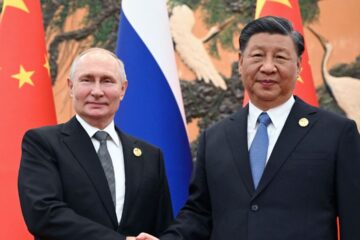

2 Comments
CHINA in AFRICA, a “shared future”? – geopol-trotters · 1 June 2023 at 7:07 am
[…] offered at the school focus on pan-Africanism and the CCP uses them to promote China’s stance in Africa and influence young generations of […]
RUSSIA, a predator in AFRICA – geopol-trotters · 13 May 2023 at 6:58 pm
[…] You will find more detailed information about the spread of Russia’s narrative in Africa in this article: Pan-Africanism: between genuine aspirations and ideological hijacking. […]